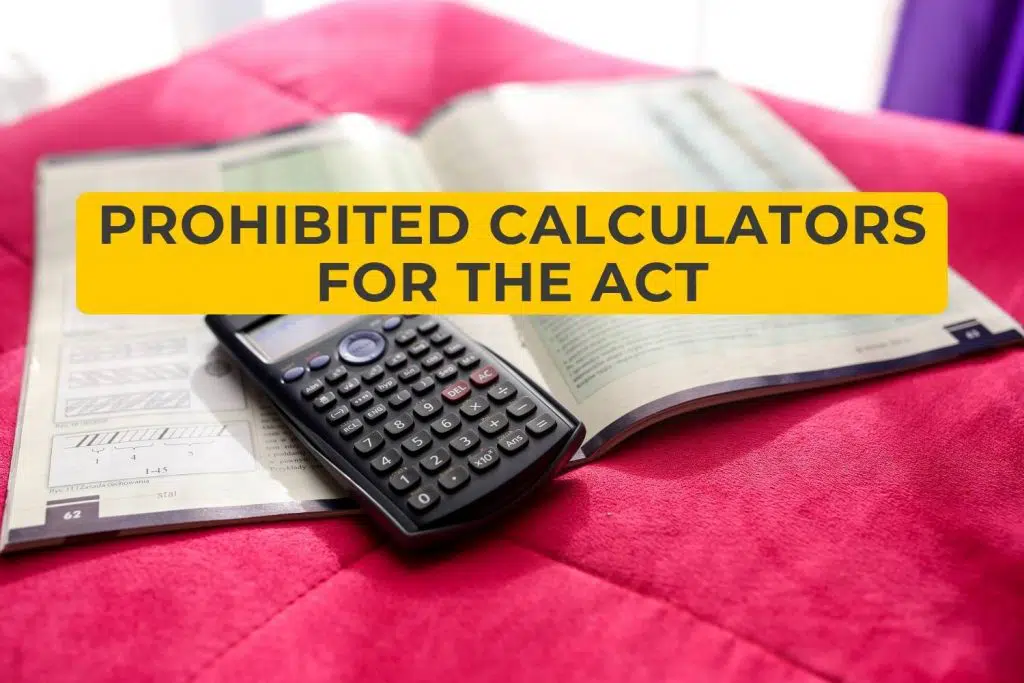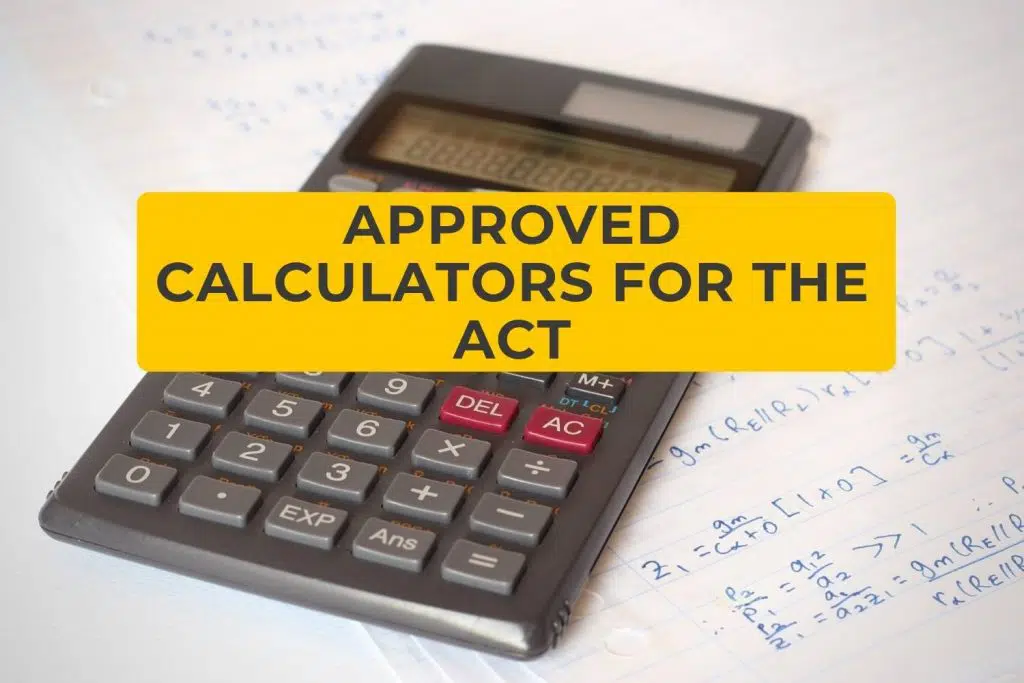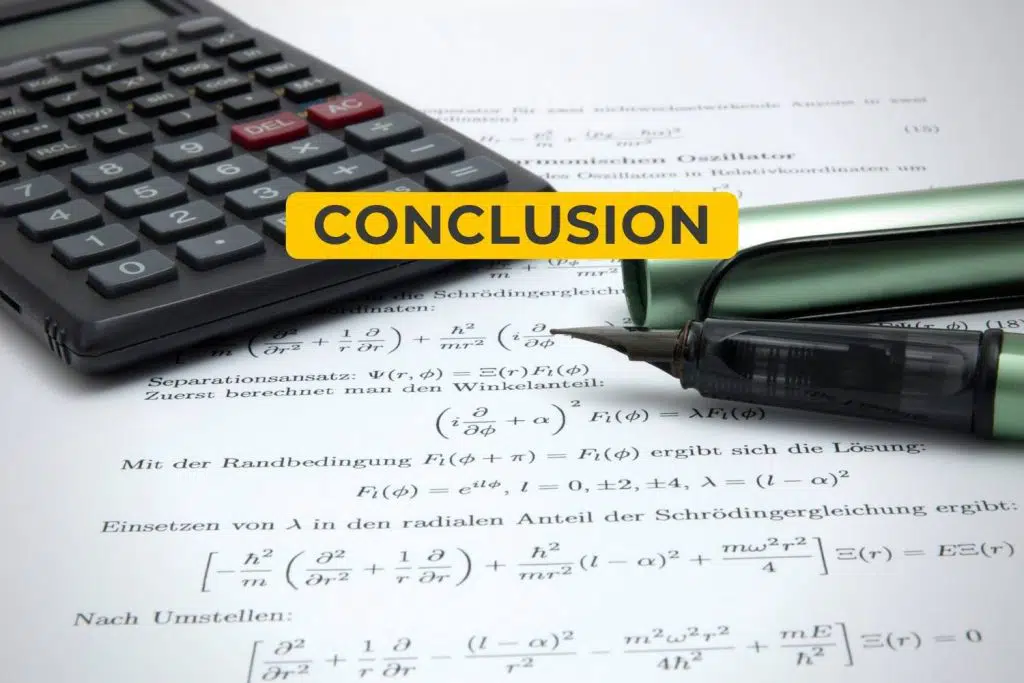

The ACT is an important standardized test that measures students’ readiness for college. The ACT administrators carefully create and score each question. It has four sections – English, Mathematics, Reading, and Science – each has specific rules to follow.
For the Mathematics and Science portions of the test, the ACT has a particular policy for calculators. Though you can use a calculator during the math part of the exam, the ACT limits the models and capabilities of the calculators you use. These limits prevent cheating.
The ACT lays out the rules in a freely-available PDF on the ACT website . There are a few exceptions that you should acknowledge, but the exceptions are primarily for accessibility.
Here’s what you need to know about the ACT calculator policy, including its restrictions and recommendations.

The ACT Calculator Policy is particular about what is and is not allowable during the exam. For the ACT Aspire test in Grades 3-5, you can’t use a calculator at all. For all other versions of the exam, they’re highly restricted and closely monitored.
According to the distributors of the ACT, there are five types of calculators that you cannot use under any circumstances during the exam:
There are a few minor exceptions to these rules. For instance, calculators delivered by ACT proctors that have passed a review for security are allowed. Even if these have QWERTY keyboards, the proctors will collect them at the end of the exam.
One example of an exception to these rules is the Sharp EL 9600 . You may use this calculator, despite its pen input.
If a proctor sees that you have a prohibited calculator during the test, they will ask you to leave and scrap your test. There may be further restrictions depending on whether you were using the calculator to cheat.

The official ACT Calculator Policy document does directly ban a few models of calculators from the top companies.

For the ACT, you are generally allowed to bring any type of calculator not listed in the categories above. It is the examinee’s responsibility to know whether their calculator will be okay to use during the exam and to make sure that they prepare.
The test’s administrators suggest putting new batteries in your calculator before the exam. Test the calculator to ensure it works properly before you leave home.
The administrators also recommend bringing either extra batteries or a backup calculator if your primary device stops working for any reason.
A few brands of calculators don’t quite go against the restrictions listed in the above section but come relatively close. Some borderline models have special regulations to be followed.
There are exceptions for calculators that function for accessibility, such as those that speak out loud or run with braille. Any accommodations must be authorized in advance by ACT officials.
In the case of a computer test, the examinee may use either a handheld calculator or a preapproved on-screen calculator program. Neither of these should be able to connect to the test directly or be internet enabled.

Speaking generally, the calculator you use on the ACT should be one with which you are familiar and one that you are comfortable using, on top of fitting into ACT guidelines.
The proctors recommend you use a calculator (though you are permitted to take the test without one), as it can improve your speed and prevent small mistakes.
Here are some of the best options for calculators to use on the ACT.
Texas Instruments calculators are classics for standardized testing and schooling in general. They’re compact, simply laid out, and are commonly used, making them a familiar choice. They allow for functions that you’ll see in algebra and geometry that can streamline the process, and there are hundreds of tutorials online for their use.
Casio is an excellent option for those who would rather spend slightly less but still want a quality calculator.
Though the functions of this calculator are somewhat more limited than Texas Instruments’ offerings, it still has a long battery life, charting functions, and clearly displayed graphics. It also includes intuitive formula input, which can reduce your test time significantly.
Sitting squarely between Casio and Texas Instruments in price is Hewlett Packard (HP). Though more well known for their computers, HP does make a decent line of graphing calculators, and the HP 39GS is one of the best.
HP offers split-screen functionality and switching functions that can increase your efficiency. Unfortunately, it doesn’t support many higher functions.

Knowing which calculators are allowed and prohibited can prevent awkward on-the-day confiscation and may even save your test.
Be sure to check the updated policy before your testing date to ensure your calculator is within regulations and that you have everything you need to keep it running during the test.
The ACT can be stressful. Make it less so with the right calculator by your side.